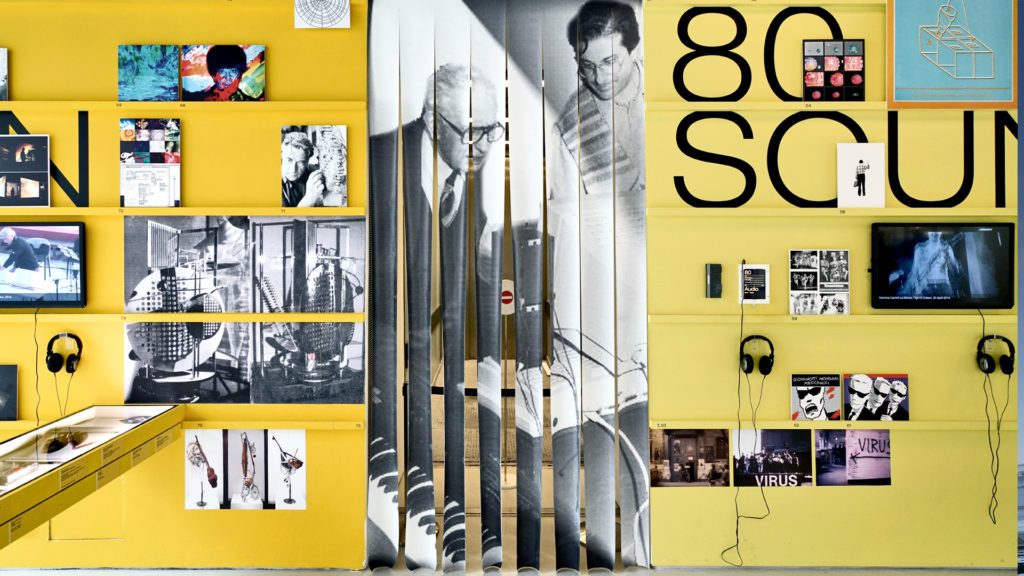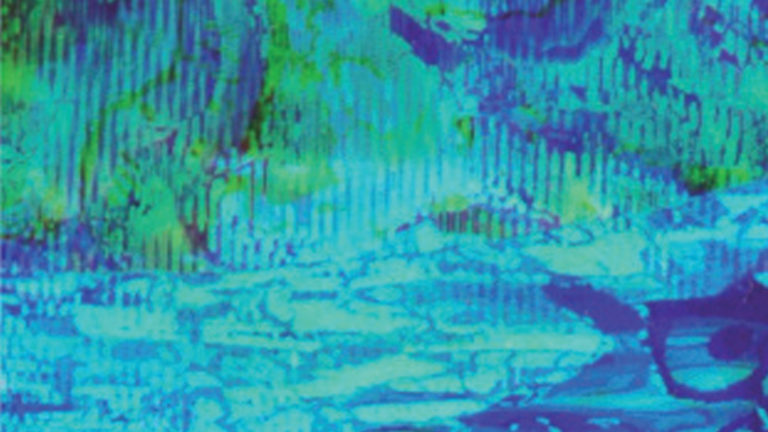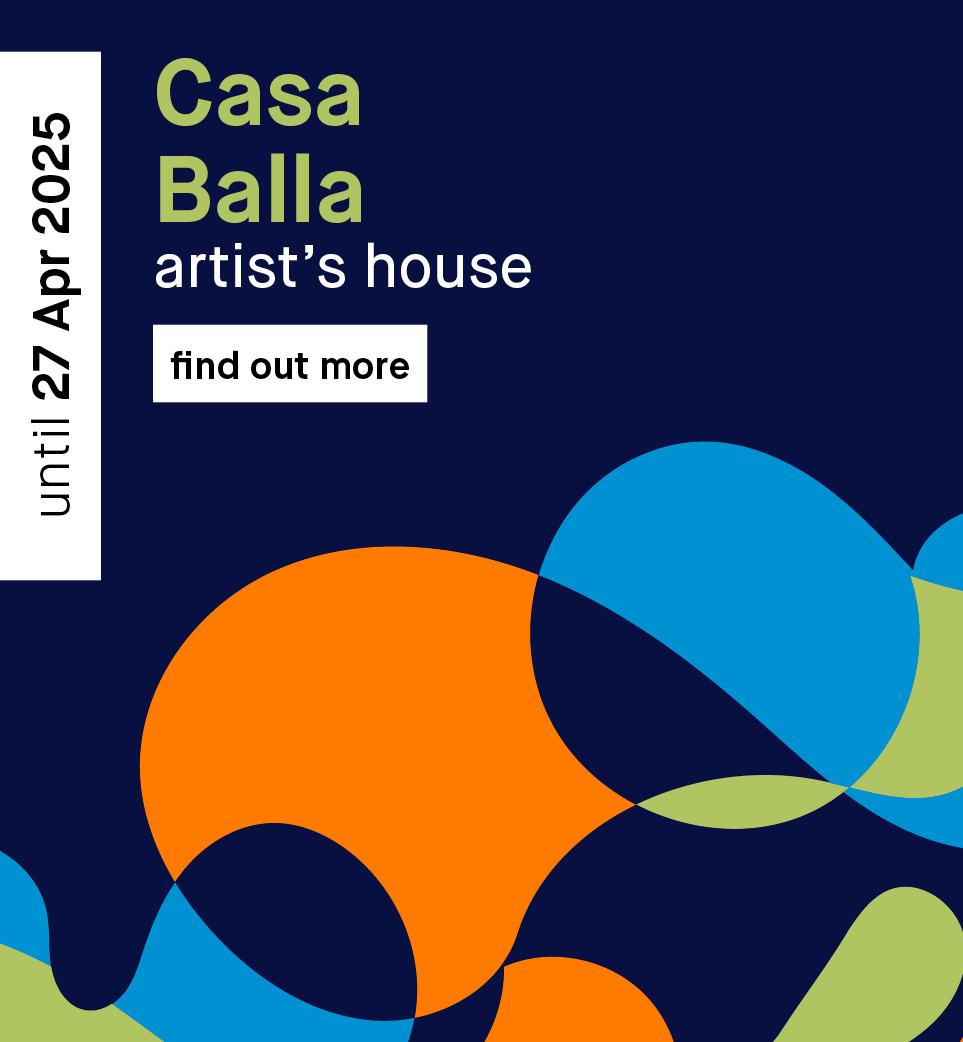Performing The Archives. Sound.From the origins of sound experimentation to ensembles
an event within

for young people aged between 18 and 25 (not yet turned 25); for groups of 15 people or more; La Galleria Nazionale, Museo Ebraico di Roma ticket holders; upon presentation of ID card or badge: Accademia Costume & Moda, Accademia Fotografica, Biblioteche di Roma, Centro Sperimentale di Cinematografia, Enel (for badge holder and accompanying person), FAI – Fondo Ambiente Italiano, Feltrinelli, Gruppo FS, IN/ARCH – Istituto Nazionale di Architettura, Sapienza Università di Roma, LAZIOcrea, Palazzo delle Esposizioni, Amici di Palazzo Strozzi, Accademia Nazionale di Santa Cecilia, Scuola Internazionale di Comics, Teatro Olimpico, Teatro dell’Opera di Roma, Teatro di Roma, Università degli Studi di Roma Tor Vergata, Youthcard; upon presenting at the ticket office a Trenitalia ticket to Rome purchased between 27 November 2024 and 21 April 2025
valid for one year from the date of purchase
minors under 18 years of age; upon presentation of disability card or accompanying letter from hosting association/institution for: people with disabilities and accompanying person, people on the autistic spectrum and accompanying person, deaf people, people with cognitive disabilities and complex communication needs and their caregivers, people with serious illnesses and their caregivers, guests of first aid and anti-violence centres and accompanying operators, residents of therapeutic communities and accompanying operators; EU Disability Card holders and accompanying person; MiC employees; myMAXXI cardholders; registered journalists with a valid ID card; European Union tour guides and tour guides, licensed (ref. Circular n.20/2016 DG-Museums); 1 teacher for every 10 students; AMACI members; CIMAM – International Committee for Museums and Collections of Modern Art members; ICOM members; journalists (who can prove their business activity); European Union students and university researchers in art history and architecture, public fine arts academies (AFAM registered) students and Temple University Rome Campus students from Tuesday to Friday (excluding holidays); IED – Istituto Europeo di Design professors, NABA – Nuova Accademia di Belle Arti professors, RUFA – Rome University of Fine Arts professors; upon presentation of ID card or badge: Collezione Peggy Guggenheim a Venezia, Castello di Rivoli Museo d’Arte Contemporanea, Sotheby’s Preferred, MEP – Maison Européenne de la Photographie; on your birthday presenting an identity document
for groups of 12 people in the same tour; myMAXXI membership card-holders; registered journalists with valid ID
under 14 years of age
disabled people + possible accompanying person; minors under 3 years of age (ticket not required)
MAXXI’s Collection of Art and Architecture represents the founding element of the museum and defines its identity. Since October 2015, it has been on display with different arrangements of works.


15 Mar 2025 05.00 pm
MAXXI with the familyDi Spazio in SpazioDivento Spazio
16 Mar 2025 05.00 pm
MAXXI with the familyDi Spazio in SpazioDivento Spazio
18 Mar 2025 07.00 pm
Le ConversazioniJonathan Safran Foerwith Antonio Monda
23 Mar 2025 04.00 pm
musicElectronic ExpressionsApogeo
23 Mar 2025 05.00 pm
CreAzioneThe Brutalistby Brady Corbet


Archive Wall – entrance fee 5 euros
ticket to 3 events 10 euros – free for myMAXXI cardholders
Three events to trace back the history of sound experimentation in Italy from 1950 to 2000
In conjunction with When Sound Becomes Form, we will retrace the fundamental stages of Italian sound experimentation over the course of three events.
This is a 50 years-long story, where sound comes off the stave and looks at new electronic technologies giving shape to innovative artistic languages and enabling a manipulation of sound and an amplification of space itself, with a cross-fertilisation of cinema, art, choreography, literature, publishing and mass media.
Beginning with composion experiments in the 1960s, the first event will kick off with sound entering the realm of gesture expressions with Giuseppe Chiari and Fluxus, where every note becomes a specific, self-sufficient element. New ways of expressions are born such as happenings and musical graphic notation or music notation. Gruppo 63 makes its debut pushing sound experimentation to the limits and pervading every field: Lamberto Pignotti,
brings to the fore visual and sound poetry, in between happening and performance. In the 1970s, new ways of investigating sound enter the cultural scene with the birth of the first dedicated events and Albert Mayr, in 1975, produces Performances from Time Aspects – an aesthetic approach to daily time management (sound time).
Introduced by
Carlo Fatigoni curator of the When Sound Becomes Form
Speakers
Albert Mayr e Lamberto Pignotti
Moderated by
Irene De Vico Fallani MAXXI Research